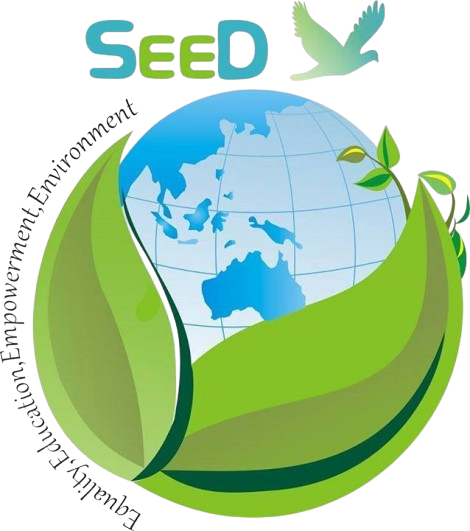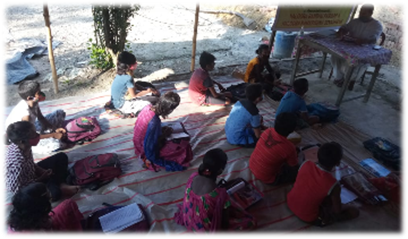






In Kolkata, ragpickers and sanitation workers represent some of the citys most marginalized urban dwellers. Families often live and work among refuse in unhygienic conditions, sorting recyclable waste day and night in poorly ventilated godowns or informal slum settlements. Children aged 6–14 from these communities are deeply vulnerable: grappling with chronic malnutrition, exposure to hazardous substances, respiratory ailments, skin infections, and lack of formal education pathways. With literacy estimates among such children being as low as 6%, dropouts are near-universal, and survival labor is often the only option. In 2002, SEED partnered with Care India to launch a community-based learning and health project in Kolkata, supporting 105 children (aged 6–14) from ragpicker and sanitation worker families living and working near Dhapa dumps and roadside godowns. This localized initiative was designed to transform the hazardous, exclusionary environments these children faced into nurturing spaces of growth and opportunity. The program’s multipronged approach included bridge and remedial education delivered through informal classes set up close to their workplaces—helping children catch up on foundational literacy and numeracy and transition into formal schools. Complementing this was a robust WASH & hygiene education component, where children learned essential practices like handwashing, safe water use, and sanitation through engaging games and community-based workshops. Health camps provided vital support via regular medical check-ups, deworming, and treatments for skin and respiratory ailments, significantly reducing illness-related absences. Crucially, the project also involved parent and community mobilization. Through regular home visits and interactive workshops, caregivers were empowered with knowledge on education, hygiene, and child rights, helping to counter exploitation and curb child labor. This intervention showed that even among populations burdened by stigma, poverty and hazardous conditions, carefully designed, empathetic interventions can restore dignity, nurture learning and chart a pathway from marginalisation to mainstream inclusion.



Subscribe to the SEED Newsletter — and be part of the change!